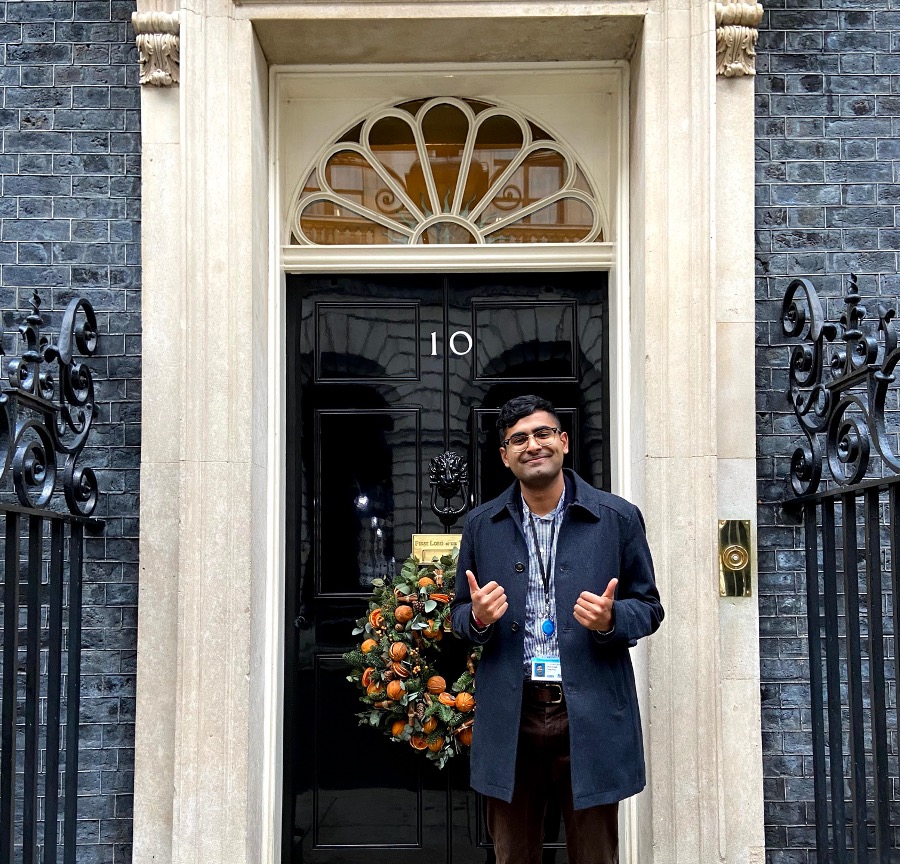My workplace developed a reverse mentoring offer. The purpose of the scheme was to provide an open and honest environment to discuss how we can foster greater inclusion at work.
 Photo by Anna Urlapova on Pexels
Photo by Anna Urlapova on Pexels
What is reverse mentoring?
Reverse mentoring is different to what you’d traditionally expect from mentoring. For one, instead of a senior leader being the mentor, I am doing the mentoring!
In reverse mentoring meetings, we exchange skills, knowledge and understanding. It’s an opportunity for mentors to give senior leaders more insight into the experiences and perspectives of staff from diverse backgrounds.
My motivation for becoming a reverse mentor
I was excited to become a reverse mentor. It’s rare for a junior member of staff to have, one-to-one time, with senior staff.
Reverse mentoring gives me the platform to talk about my experience being from a Black and Ethnic Minority (BAME) community, and living with a disability.
My first meeting with my mentee
I was nervous about meeting my mentee for the first time. What if I said something out of turn? What if we don’t get on? I’m glad to say my concerns were put to bed straightaway. I found them to be warm, friendly and engaging. We seem to complement each other well, and we found similarities and understanding in areas, in which we didn’t think we would.
Everything we discuss in our meetings is kept confidential. It allows us both to raise topics of discussion, without fear or judgement.
My mentee is keen for us to maintain momentum, so we meet every three weeks.
What I’ve gained from reverse mentoring
The big thing I’ve gained from reverse mentoring is the confidence to interact with senior leaders. When a senior leader asked me to present to his team, I felt confident in my ability to do so. If you had asked me last year, I might have shrieked in horror at the thought of it!
Also, I now engage with people differently. Everyone has something happening in their lives. It’s not always obvious what that is until you take the time to listen.
My hope was for reverse mentoring to push, both myself and my mentee, outside of our comfort zones, and challenge us to try new ways of thinking.
“I’m not different than you, I’m different like you”
Words to live by.
Forming a reverse mentoring community
I’m not the only reverse mentor. With help from the organiser of the reverse mentoring scheme, we set up the first reverse mentoring community.
We meet every month, and we our share experiences of reverse mentoring. Of course, everything we share is done sensitively. We don’t share anything personal said in reverse mentoring meetings.
Top tips from the reverse mentoring community
It’s been great to meet others like me, and for us to lean on each other for help and advice for how to approach reverse mentoring sessions. Here are some top tips from the community:
- Keep questions broad and open.
- When talking about yourself, immediately follow up and ask the reverse mentee to do the same (it gives them a structure to follow and it also means they are more likely to engage).
- Keep asking ‘why’ (helps breakdown barriers and gets them to explain their thoughts).
- Set your expectations from the start (if the relationship isn’t working, that is ok! State what you want from the relationship from the beginning).
- Try to talk about things other than work at the beginning, it will help you to understand their personality.
- Start with a friendly chat — catch up on what has been happening since you last saw each other — this will make you both feel more relaxed before you move on to the ‘heavy’ subjects
- If you don’t feel that you’ve ‘cracked’ them yet, try an icebreaker — for example, share an interesting fact about yourself, your favourite hobbies, or what in the news has captured your attention lately..
- Note down for yourself a list of things you would like to cover (either in that particular session, or through the process. That way, if you feel the conversation has hit a lull you have something to move on to.
- Turn questions back on to the questioner — this is a useful way to learn more about what they are hoping to gain from your answer, or to make it feel more like a chat.
Remember: we all bring something unique to the table. Seize the opportunity to share that with others. Your views matter. That’s the power of reverse mentoring.

